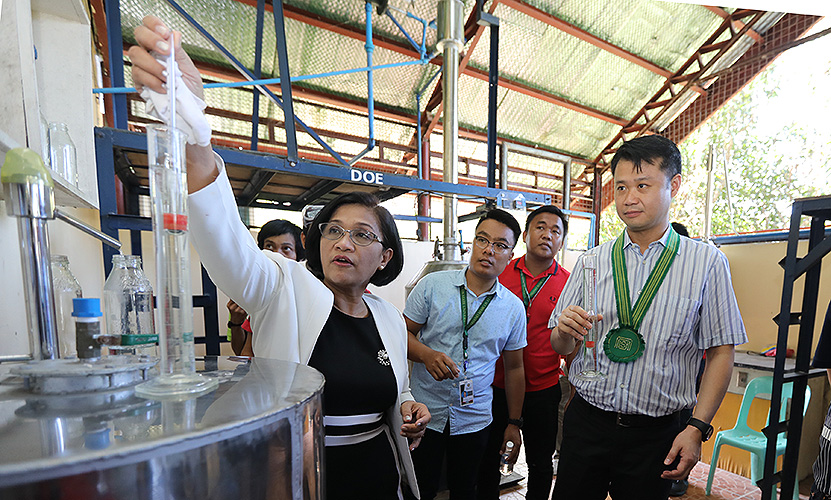
Senator Win Gatchalian is pushing for diversification of bioethanol feedstock sources and improved production processes to help bring down barriers preventing the takeoff of biofuels in the country.
In his speech during the recent Global Bioenergy Partnership event, Gatchalian recognized the importance of the Republic Act No. 9367 or the Biofuels Act of 2006 in spurring the use of indigenous and clean energy sources in transportation and power generation.
Gatchalian however pointed out that the bioenergy industry continues to stagnate even after the law had taken effect. The Biofuels Act mandates all liquid fuels for motors and engines sold in the country to contain locally sourced biofuels.
The lawmaker vowed to champion the diversification of bioethanol feedstock sources and improved production processes and the improved processes for feedstock once the 18th Congress opens next month. He emphasized the need for research and development for sustainable feedstock supply both for bioethanol and biodiesel.
“The continued importation of biofuels goes against the very purpose of the law, which is to decrease dependence on imported fuel,” Gatchalian said. “This situation, if left unaddressed, is expected to worsen given the growing demand for bioethanol brought about by the climbing demand for gasoline.”
“The Senate Committee on Energy remains committed to bolstering the growth of local bioethanol production through increased research and development towards economic efficiency,” he added.
Citing data from the Department of Energy (DOE), the senator pointed out that biofuels account for a mere 1.5% in the share of bioenergy in the country’s 2017 total final energy consumption. Gatchalian blamed the limited feedstock supply in the country on the lower production of bioethanol in the country.
The DOE data revealed that operating bioethanol plants with 365 million liters of capacity only produce 270 million liters of bioethanol. Gatchalian stressed this figure is below the 10% blend requirement of 550 million liters.
Moreover, Gatchalian also noted a shortfall in molasses production, prompting the government to import 50.91% of bioethanol.
In crop year 2017 to 2018 alone, the lawmaker estimated that around 78% of total molasses produced was used as feedstock for bioethanol and thus resulting in the domestic production of 49.09% of bioethanol demand.
Meanwhile, Gatchalian highlighted the role of research and development for sustainable feedstock supply both for bioethanol and biodiesel. Currently, Gatchalian said there are a number of institutions engaged in this kind of research – Mariano Marcos State University for nipa and University of the Philippines Los Baños for sweet sorghum.


